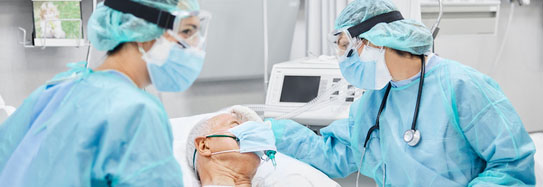Loss of appetite isn’t uncommon post sepsis. First, you’re not as physically active, so you may not be working up an appetite. Foods may taste funny. The idea of eating may make you feel nauseous. Or, you may be too fatigued to want to eat. If this is the case, usually grazing is your best bet, rather than a few large meals. Grazing means picking at healthy foods or having small meals whenever you’re hungry throughout the day. Facing the idea of eating can be difficult. In this case, a smoothie made with fruits and some vegetables can be filling, tasty, and healthy, as can soups and similar meals.
If you’re not tempted to eat because the food doesn’t taste good, experiment with flavors – herbs and mild spices can make a big difference in how something tastes. Pain can also affect your appetite. In this case, try timing your meals for about a half-hour or so after you take your pain reliever. This allows the pain to subside, and hopefully, your appetite will be a bit stronger.
Ensure you have a good combination of nutrients in your food and drink. This is not the time to follow special diets that eliminate carbs or other food groups. Healthy fats, such as those from olives, nuts, fatty fish (like salmon, tuna, mackerel), soy, and tofu, are essential in providing your body with protein, which is a building block for muscle mass. You can get protein by consuming whole eggs, fruit, and even peanut butter.
As much as dietitians want their clients to eat as healthy as possible, moderation is key. If you’re not terribly hungry and you crave food that may not be considered beneficial, a small amount now and then should not hurt. This, of course, is unless you have a medical issue that prevents you from consuming it. If you forbid a whole group of foods, that may worsen the cravings than if you had just enough to satisfy the desire.






































